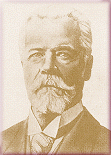|

Was sind die 14 Principles of Management (14 Prinzipien des Managements)?
Die 14 Managementgrundsätze von Henri Fayol (1841-1925) sind:
- Arbeitsteilung. Spezialisierung erlaubt der Einzelperson, Erfahrung aufzubauen, und seine Fähigkeiten ununterbrochen zu verbessern. Dadurch kann er produktiver sein.
- Autorität. Das Recht, Befehle zu geben, mit dem die ausgeglichene Verantwortlichkeit für seine Funktion einhergehen muss.
- Disziplin. Angestellte müssen folgsam sein, aber dieses ist zweiseitig: Angestellte werden nur Aufträge befolgen, wenn das Management seinen Teil dazu beiträgt, indem es gute Führung zur Verfügung stellt.
- Einheit des Befehls. Jeder Arbeiter sollte nur einen Vorgesetzten ohne andere kontroverse Instanzlinien haben.
- Einheit der Richtung. Personen, die die gleiche Art von Aktivitäten ausüben, müssen die gleichen Zielsetzungen in einem einzigen Plan haben. Dieses ist wesentlich, um Einheit und Korrdination im Unternehmen sicherzustellen. Einheit des Befehls besteht nicht ohne Einheit der Richtung, aber stammt nicht notwendigerweise von ihr ab.
- Unterordnung der individuellen Interessen (zu den allgemeinen Interessen). Management muss sehen, dass die Ziele der Unternehmen immer vorrangig sind.
- Vergütung. Bezahlung ist ein wichtiger Motivator, obgleich, indem er eine Anzahl von Möglichkeiten analysiert, Fayol unterstreicht, dass es kein vollkommenes System gibt.
- Zentralisierung (oder Dezentralisierung). Dieses ist eine Frage des Grades, abhängig von dem Zustand des Unternehmens und der Qualität seines Personals.
- Hierarchie (Autoritätsbereich). Eine Hierarchie ist für Einheit der Richtung notwendig. Aber laterale Kommunikation ist auch fundamental, solange Vorgesetzte wissen, dass solche Kommunikation stattfindet. Skalarkette bezieht sich auf die Anzahl von Niveaus in der Hierarchie, von der entscheidenden Autorität bis zum niedrigsten Niveau in der Organisation. Sie sollte nicht überdehnt sein und aus zu vielen Niveaus bestehen.
- Ordnung. sowohl materielle Ordnung als auch soziale Ordnung sind notwendig. Ersteres minimiert verlorene Zeit und unbrauchbare Bearbeitung von Materialien. Letzteres wird durch Organisation und Auswahl erzielt.
- Eigenkapital. Im Führen eines Geschäftes ist eine „Kombination von Freundlichkeit und Gerechtigkeit“ erforderlich. Angestellte gut zu behandeln ist wichtig, um Eigenkapital zu erzielen.
- Stabilität der Amtszeit des Personals. Angestellte arbeiten besser, wenn ihnen Arbeitsplatzsicherheit und Karrierefortschritt zugesichert werden. Eine unsicherer Amtszeit und eine hohe Rate von Angestelltenfluktuation beeinflussen die Organisation nachteilig.
- Initiative. Dem gesamten Personal zu erlauben, ihre Initiative zu zeigen, ist in gewisser Weise eine Quelle der Stärke für die Organisation. Obwohl es auch ein Opfer „der persönlichen Eitelkeit“ von seiten vieler Manager einbeziehen kann.
- Esprit de Corps. Management muss die Moral seiner Angestellten fördern. Darüber hinaus schlägt er vor: „reales Talent ist erforderlich, um Bemühung zu koordinieren, Eifer anzuregen, Fähigkeiten jeder Person zu verwenden, und den Verdienst jedes einzelnen zu belohnen, ohne mögliche Eifersucht zu wecken und harmonische Beziehungen zu stören.“
5 Managementfunktionen (Fayol)
Im Rahmen der „administrativen“ Tätigkeit, des Administrators – den wir heute Manager nennen – unterscheidet Fayol fünf Funktionen:
- Prevoyance. (Prognose u. Plan). Die Zukunft überprüfen und einen Aktionsplan aufstellen. Die Elemente der Strategie.
- Zu organisieren. Die Struktur des Unterfangens aufbauen , sowohl materiell als auch menschlich.
- Zu befehlen. Beibehalten der Aktivität unter dem Personal.
- Zu koordinieren. Zusammenbinden, alle Aktivität und Bemühung vereinheitlichen und harmonisieren.
- Zu kontrollieren. Sehen, dass alles in Übereinstimmung mit etablierter Richtlinie und ausgedrücktem Befehl geschieht.
Ursprung der 14 Principles of Management (14 Prinzipien des Managements). Geschichte
Henri Fayol (1841-1925) war ein französischer Managementtheoretiker, dessen Theorien im Management und in der Organisation der Arbeit am Anfang des 20. Jahrhunderts sehr einflußreich waren. Er war ein Mineningenieur, der für eine französische Bergwerkgesellschaft Commentry-Fourchamboult-Decazeville arbeitete, zuerst als Ingenieur. Dann arbeitete er im allgemeinen Management und wurde Geschäftsführer von 1888 bis 1918. Während seines Besitzes als -Geschäftsführer schrieb er verschiedene Artikel auf „Leitung“ und in 1916 das Nachricht de la Société de l' Industrie Minérale, gedruckt seiner „Leitung, Industrielle und Générale - Prévoyance, Organisation, Commandement, Korrdination, Contrôle“. Im Jahr 1949 erschien die erste englische Übersetzung: „General and Industrial Management“ durch Constance Storrs.
Gebrauch der 14 Managementgrundsätze. Anwendungen
- Veränderung und Organisation.
- Entscheidungsfindung.
- Fähigkeiten. Kann verwendet werden, um die grundlegende Effektivität eines Managers zu verbessern.
- Um zu verstehen, dass Management als eine Vielzahl von Aktivitäten angesehen werden kann, die aufgelistet und gruppiert werden können.
Buch: Henri Fayol - General and Industrial Management
|
Prinzipien des Managements Fachgruppe.

Fachgruppe (376 Mitglieder)
|
|
|
Kurse über Prinzipien des Managements.

Anfängerkurs
|

Fortgeschrittener Kurs
|

Kurs für Experten
|
|
|
|
Die am besten bewerteten Themen über Prinzipien des Managements. Hier finden Sie die wertvollsten Ideen und praktischen Vorschläge.
|
|
|
Erweiterte Einblicke zu Principles of Management (Englisch). Hier finden Sie professionelle Ratschläge von Experten.

Beratungstipps
|

Unterrichtstipps
|

Praktische Umsetzungstipps
|
|
|
|
|
|
Verschiedene Informationsquellen zu Prinzipien des Managements. Hier finden Sie Powerpoints, Videos, Nachrichten usw., die Sie in Ihren eigenen Vorträgen und Workshops verwenden können.

|
Visions on the Roles of Managers, Management Roles, Managerial Roles Management, Leadership, Reflection on What Management Fundamentally is, Workshops, Trainings
This superb presentation outlines the roles and tasks that managers perform. The presentation includes views of importan...
|

|
Scientific Management: Definitions, Theorists and Main Contributions Scientific Management, Taylor, Gannt, Gilbreth, Gulick, Weber, Fayol
Presentation about Scientific Management that includes a description of the main theorists their contributions to the th...
|

|
The Role of Supervisor | Skills of Supervisors Skills of a Supervisor, Supervisor Role, Supervisor Behavior
This presentation elaborates on the skills that supervisors need in order to be successful in their business/organizatio...
|

|
Fayol Principles of Management Principles of Management
Short presentation by Saruchi Pandey....
|

|
Delegation versus Empowerment Delegation, Employee Empowerment, Situational Leadership, Management
Employees want to feel that their work is important and that they contribute to the success of the company. As a manager...
|

|
Theory of Bureaucracy (Weber) and the 14 Principles of Management (Fayol) Administration, Management, Early Administrative Management Theories, 5 Principles, Bureaucracy
This presentation presents the 5 Principles of Weber’s Theory of Bureaucracy and Henri Fayol's 14 Principles of Manageme...
|

|
Leading versus Managing Understanding the differences between Leading and managing
Dr. John Kotter gives his opinion on what are the key differences between leading and managing.
- Management is a set o...
|

|
Original Source Document of the 14 Principles of Fayol Management History 'pur Sang'
Scan of the section in Fayol's Original Work "Administration Industrielle et Générale" that contains the "Principes et é...
|

|
Principles of Management Principles and History of Management
Presentation by WJ Patterson includes some generic thoughts, observations on management and contains some slides on mana...
|

|
Young Steve Jobs on the Role of Managers Management, Leadership, Talent Management, Talent Acquisition, Talent Development
This video is a nice start for any management course. Jobs shares some ideas on managers (in a high-tech environment) an...
|

|
Mintzberg Presents 3 Views Towards Management and Decision-making Initial Understanding of Management and Decision Making, Trainings, Workshops
Short presentation by Professor Henry Mintzberg on:
A. Management as a Practice, in which he argues it is in the center...
|

|
10 Differences Between Managers and Leaders Management, Leadership, Development
According to Scott Williams, people don't want to be managed, they want to be lead.
The 10 simple, but important differ...
|

|
Brief Overview of the Informal Organization Informal Organization
Presentation that elaborates on the concept of informal organization. The presentation includes the following sections:
...
|

|
Interpretation of the 14 Principles of Management: Comparison of Then and Now Principles of Management
Paper by C.A. Rodrigues. This paper compares interpretation Fayol's fourteen Principles of Management today and in the p...
|
|
|
|
Nützliche Tools bezüglich Prinzipien des Managements.

Nachrichten
|

Videos
|

Präsentationen
|
| |

Bücher
|

Akademisch
|

Mehr
|
|
|
|
Vergleichen Sie mit dem 14 Principles of Management (14 Prinzipien des Managements): POSDCORB Functionen | Organigramm (Organisationsplan) | 14 Punkte des Managements (Deming) | Zehn Denkschulen | Ausbildung am Arbeitsplatz | Acht Attribute von exzellentes Unternehmen | Zentralisierung und Dezentralisierung
Zurück zur Managementdisziplin: Veränderung & Organisation | Kommunikation & Fähigkeiten | Entscheidungsfindung & Bewertung | Human Resources
Mehr Managementmethoden, Modelle und Theorie
|
|
|














